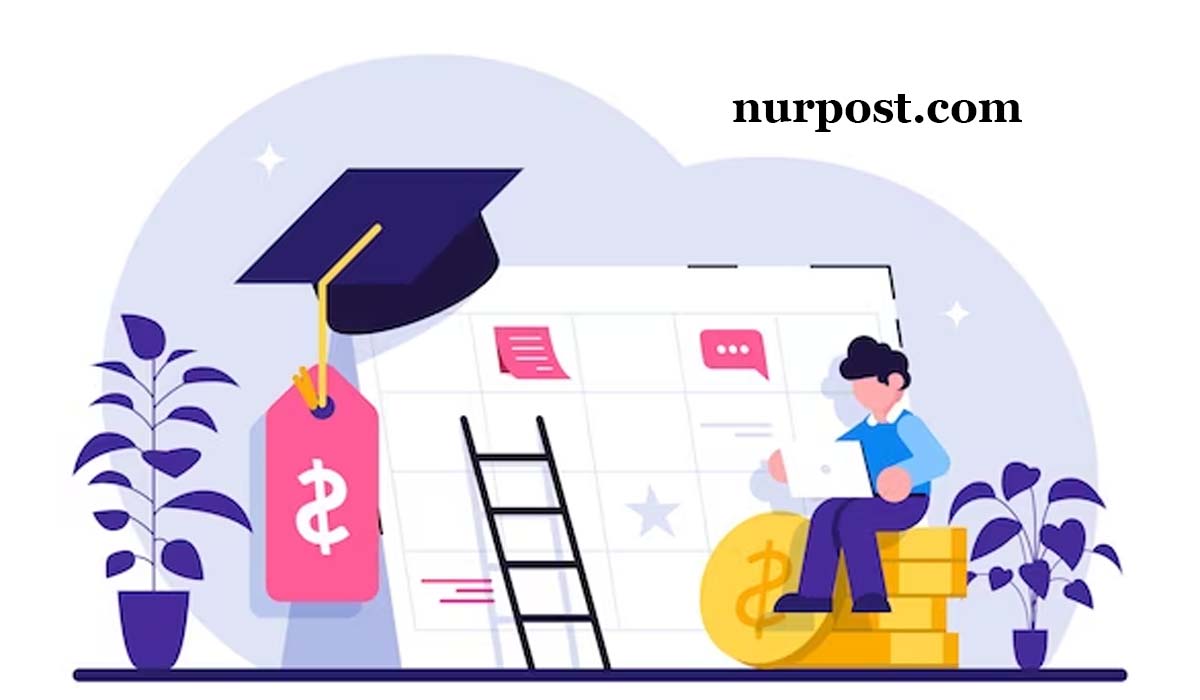Top 10 Tips for Successfully Repaying Your Student Loans In this blog post, we will discuss the top 10 tips for successfully repaying your student loans.
Top 10 Tips for Successfully Repaying Your Student Loans
Repaying student loans can be a daunting task, but with the right strategies and mindset. You can tackle this financial obligation and achieve financial freedom. We will provide practical advice on budgeting, loan repayment options, and tips for managing your debt effectively.
Whether you are a recent graduate or have been repaying your loans for some time, these tips will help you navigate the repayment process and stay on track towards becoming debt-free.
1. Understand Your Loan Terms
• Familiarize yourself with the terms of your loan, including interest rates, repayment period, and any grace periods.
• Know whether your loans are federal or private as they may have different repayment options and benefits.
2. Create a Budget
- Develop a comprehensive budget that includes all of your expenses and income.
- Allocate a specific amount each month towards your student loan payments.
- Cut back on unnecessary expenses to free up more money for loan repayments.
3. Explore Repayment Options
• Research different repayment plans such as income-driven repayment or extended repayment options.
• Determine which plan works best for your financial situation and consider consulting a loan counselor if needed.
4. Make Extra Payments When Possible
• Whenever you have extra funds available, consider making additional payments towards your principal balance.
• This will help reduce the overall interest paid over the life of the loan and shorten the repayment period.
5. Consider Loan Forgiveness Programs
• Look into loan forgiveness programs that may be available to you based on your profession or income.
• These programs can help reduce or eliminate a portion of your student loan debt.
6. Refinance Your Loans
• If you have good credit and a steady income, consider refinancing your loans to get a lower interest rate.
• This can potentially save you thousands of dollars over the life of the loan.
7. Stay in Touch with Your Loan Servicer
• Keep your loan servicer updated with any changes in contact information or financial circumstances.
• They can provide guidance and assistance if you encounter difficulties in making payments.
8. Automate Your Payments
• Set up automatic payments to ensure that your monthly payments are made on time.
• This will help you avoid late fees and potential damage to your credit score.

9. Seek Employment Benefits
• Research if your employer offers any student loan repayment assistance or benefits.
• Take advantage of these opportunities to accelerate your repayment progress.
10. Stay Motivated and Persistent
Paying off student loans takes time, so it’s important to stay motivated and persistent throughout the process.
Maintain a positive mindset and celebrate small milestones along the way.
By following these top 10 tips for successfully repaying your student loans, you will be well-equipped to manage your debt responsibly and achieve financial freedom. Remember, every payment brings you one step closer to being debt-free. Stay focused, stay disciplined, and soon enough, you’ll be celebrating the day when you make that final payment..
Top 10 Tips for Successfully Repaying Your Student Loans
What are student loans?
– Understand the terms and conditions: Before taking out a student loan, it is crucial to understand the terms and conditions associated with it. Familiarize yourself with interest rates, repayment plans, and any potential penalties or fees.
– Borrow only what you need: It can be tempting to borrow more than necessary, but remember that every dollar you borrow will have to be repaid with interest. Only borrow what you absolutely need to cover your educational expenses.
– Create a budget: Develop a realistic budget that includes your monthly loan payments. This will help you plan your finances accordingly and ensure that you have enough money to cover your loan obligations.
– Explore repayment options: There are various repayment options available for student loans, such as income-driven repayment plans or extended repayment plans. Research and understand these options to determine which one suits your financial situation best.
Top 10 Tips for Successfully Repaying Your Student Loans
– Make timely payments: Paying your student loan on time is crucial for maintaining good credit and avoiding late fees or penalties. Set up automatic payments or reminders to ensure that you never miss a payment.
– Consider refinancing or consolidation: If you have multiple student loans, consolidating them into a single loan can simplify the repayment process. Additionally, refinancing may allow you to secure a lower interest rate, potentially saving you money in the long run.

– Take advantage of forgiveness programs: Some professions or organizations offer loan forgiveness programs for individuals who work in certain fields or meet specific criteria. Research if you qualify for any of these programs as they can significantly reduce your debt burden.
– Increase your income: Consider taking on a part-time job or freelancing to increase your income. Applying the extra earnings towards your student loan payments can help you pay off your debt faster.
– Communicate with your lender: If you are facing financial difficulties or are unable to make your monthly payments, reach out to your lender. They may be able to offer alternative repayment options or temporary relief until you get back on track.
– Prioritize high-interest loans: If you have multiple student loans with varying interest rates, focus on paying off the loans with the highest interest rates first. This will save you money on interest payments in the long run.
How can I successfully repay my student loans?
– Stay organized: Keep track of all loan documents, correspondence, and payment receipts. Having a system in place will help you stay on top of your loan obligations and avoid any confusion or missed payments.
– Avoid unnecessary expenses: Cut back on non-essential expenses and prioritize paying off your student loans. Consider making sacrifices in other areas of your life to allocate more funds towards loan repayment.
– Take advantage of employer benefits: Some employers offer student loan repayment assistance as part of their benefits package. Check if your employer provides this option and take advantage of it to reduce your debt burden.
– Refinance at lower interest rates: As you build a good credit history and improve your financial situation, consider refinancing your student loans at lower interest rates. This can potentially save you thousands of dollars over the life of the loan.
– Make extra payments when possible: Whenever you have some extra money available, consider making additional payments towards your student loans. Even small amounts can make a significant difference in reducing your overall debt.
– Seek professional advice: If you are struggling to manage your student loan payments or need guidance on repayment strategies, consider seeking advice from a financial advisor or student loan counselor. They can provide personalized guidance based on your specific situation.
The Future of Top 10 Tips for Successfully Repaying Your Student Loans
How will the landscape of student loan repayment change?
The landscape of student loan repayment is constantly evolving, and it is essential to stay informed about potential changes that may impact your repayment strategy. Here are some possible future developments:
– Loan forgiveness expansion: There may be an expansion of loan forgiveness programs, making it easier for borrowers to have a portion or all of their loans forgiven. This could benefit individuals working in certain public service professions or those with high levels of debt relative to their income.

– Simplified repayment options: The government and lending institutions might work towards simplifying the various repayment options available. This could involve streamlining income-driven plans or creating universal guidelines for borrowers to follow.
– Increased focus on financial education: As the student loan crisis continues to grow, there may be a greater emphasis on financial education for students before they take out loans. This could help individuals make more informed decisions about borrowing and managing their debt.
– Technology-driven solutions: Advancements in technology may lead to innovative solutions for student loan repayment. We might see the development of mobile apps or online platforms that provide personalized recommendations, budgeting tools, and resources to help borrowers navigate their repayment journey more effectively.
Frequently Asked Questions
1. Can I refinance my student loans multiple times?
Yes, it is possible to refinance your student loans multiple times. However, it is important to carefully consider the potential benefits and drawbacks of refinancing each time. Evaluate factors such as interest rates, loan terms, and any associated fees before deciding to refinance.
2. Can I change my repayment plan after graduation?
Yes, you can change your repayment plan after graduation. Most federal student loans offer various repayment options that can be changed or modified based on your financial circumstances. Contact your loan servicer to explore different repayment plans and determine which one suits you best.
3. What happens if I miss a student loan payment?
If you miss a student loan payment, it is important to take immediate action. Contact your lender or loan servicer as soon as possible to explain the situation and discuss potential solutions. Missing payments can negatively impact your credit score and may result in late fees or penalties.
4. Are there any tax benefits for repaying student loans?
Yes, there are tax benefits available for repaying student loans. The Student Loan Interest Deduction allows eligible borrowers to deduct up to $2,500 in interest paid on qualified student loans from their taxable income. Consult with a tax professional or refer to IRS guidelines for more information.
5. Can I pay off my student loans early?
Yes, you can pay off your student loans early without facing any penalties or fees in most cases. Making extra payments towards your principal balance can help reduce the overall interest you owe and shorten the repayment period.
6. Will paying off my student loans improve my credit score?
Paying off your student loans consistently and on time can have a positive impact on your credit score. It demonstrates responsible financial behavior and can improve your creditworthiness in the eyes of lenders.
7. Can I transfer my student loans to another lender?
In some cases, it is possible to transfer your student loans to another lender through a process called student loan refinancing. However, eligibility requirements and terms may vary depending on the new lender. Consider factors such as interest rates, repayment terms, and fees before deciding to transfer your loans.
8. What happens if I cannot afford my monthly loan payments?
If you are unable to afford your monthly loan payments, reach out to your lender or loan servicer immediately. They may be able to offer alternative repayment options such as income-driven plans or temporary forbearance or deferment until you regain financial stability.

9. How long does it take to repay student loans?
The length of time it takes to repay student loans depends on various factors, including the amount borrowed, interest rates, and the repayment plan chosen. Standard repayment plans typically span over 10 years, but extended plans can extend up to 25 years or more.
10. Can I discharge my student loans through bankruptcy?
Discharging student loans through bankruptcy is challenging but not impossible. To have your student loans discharged in bankruptcy, you must prove that repaying them would cause undue hardship based on specific criteria established by federal law. Consult with a bankruptcy attorney for guidance on this matter.
